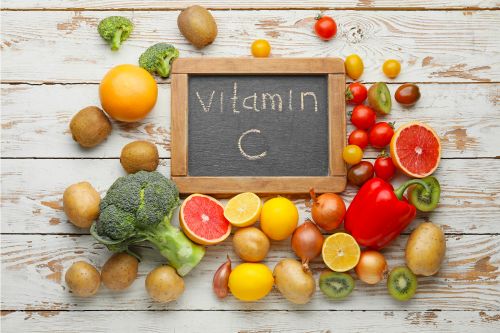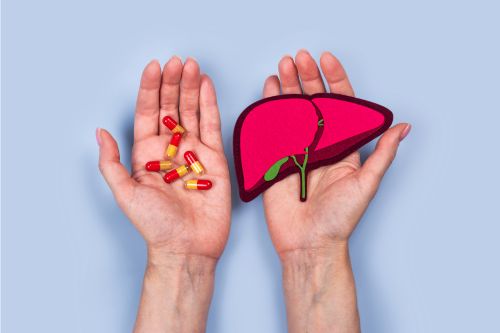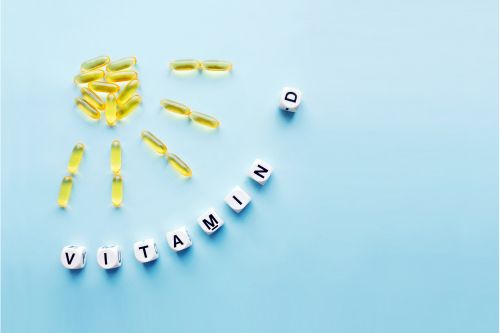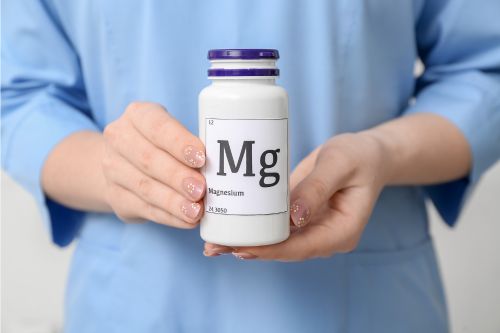6 Min Read
6 Ways to Support Heart Health

It’s never too early or too late to start thinking about your heart health. Let’s take a look at six ways you can start supporting heart health today.
How does a healthy heart work?
The heart is, quite literally, the center of all life in the body. It is the center of the circulatory system, a network of blood vessels that deliver blood and oxygen to all majors organs.
The heart is divided into two pumping systems, the right and left side, with two chambers that pump blood on each side. The right side of the heart receives oxygen-poor blood from your veins and pumps it to the lungs, where it picks up oxygen and gets rid of carbon dioxide. The left side of the heart receives oxygen-rich blood from the lungs and pumps it through the arteries to the rest of your body.
A healthy heart also ensures that the nutrients you get from food or supplements are absorbed and used by the body. The blood uses a network of arteries, veins and capillaries to gather food nutrients from the small intestine and delivers them to every cell.
However, poor eating habits and lifestyle choices can significantly affect the health of your cardiovascular system. According to the Canadian Heart & Stroke Foundation, 80% of premature heart disease and stroke can be prevented through life habits, such as healthy eating and regular exercise.
Six ways to support heart health
1. Exercise regularly
Regular exercise is one of the best ways to promote heart health daily. Exercise can reduce “bad” cholesterol levels in the blood (the low-density lipoprotein [LDL] level), as well as total cholesterol, and can raise the “good” cholesterol (the high-density lipoprotein level [HDL]).
That’s not all: exercise also promotes healthy physiological changes, such as encouraging the heart’s arteries to dilate more readily. It can also help your sympathetic nervous system (which controls heart rate and blood pressure) to be less reactive.
How much exercise do I need?
The Canadian Heart & Stroke Foundation recommends adults should accumulate at least 150 minutes of moderate- to vigorous-intensity aerobic physical activity per week, in bouts of 10 minutes or more. It doesn’t have to be non-stop – like an aerobics class – you can do 10 minutes or more throughout your day to reach your daily goal.
What kind of exercise should I do for heart health?
Just as a variety of foods is important for healthy eating, various activities are important for healthy living. A holistic exercise regime includes endurance, strength, flexibility, and balance activities. Endurance exercises involve continuous movements, such as walking, cycling or tennis and are especially beneficial for your heart, lungs, and circulatory system.
2. Eat heart-healthy foods
Equally as important as regular exercise is eating heart-healthy foods. A nutrient-rich diet is one that includes a variety of fruits and vegetables, whole grains, skinless poultry and fish, nuts and legumes, and oils such as olive, avocado, flaxseed, or sesame. Try to limit foods that are high in calories but low in nutrients.
Omega-3 fatty acids and heart health:
You may have heard of fats referred to as “good fat” or “bad fat.” Bad fats refer to trans fats – a byproduct of a hydrogenation process used to turn healthy oils into solids and prevent them from becoming rancid. Good fats, on the other hand, come mainly from vegetables, seeds, and nuts. Olive oil, avocados, and most nuts are all sources of “good fats.”
Omega-3 fatty acids are considered “good fats” and are well known for supporting heart health. Good sources of omega-3’s are salmon, tuna, mackerel, flaxseeds, or walnuts.
However, if your diet does not include enough omega-3 fatty acids, the easiest way to ensure you are getting enough is through a supplement. Here are a few of our favourites:
Sisu Full Spectrum™ Omega offers 1200 mg of wild Alaskan salmon, as well as vitamin D3, and helps support cognitive and cardiovascular health.
3. Know the facts about cholesterol
Like fats, not all cholesterol is bad. High-density lipoprotein (HDL) is known as “good” cholesterol because it helps your body get rid of excess cholesterol so that it’s less likely to end up in your arteries. On the other hand, low-density lipoprotein (LDL) is known as “bad” cholesterol because it takes cholesterol to the arteries, where it may collect on the artery walls.
Put it simply; heart health isn’t as much about lowering your cholesterol as it is about knowing your numbers. Maintaining cholesterol and triglyceride levels within healthy limits is critical for decreasing the risk of heart disease.
What is policosanol?
A substance often obtained from sugar cane, Policosanol is one of the most recommended natural supplements for promoting healthy cholesterol levels.
Along with a lipid-lowering diet, Sisu Policosanol 10 mg helps to reduce blood cholesterol in adults suffering from high cholesterol.
4. Take a heart-healthy supplement
Taking a supplement is the perfect way to fill in nutritional gaps in your diet and offer additional cardiovascular support. Let’s take a look at a few of our favourites:
CoQ10 For Heart Health
Coenzyme-Q10, or CoQ10, is an enzyme that the body produces naturally. It is stored in the mitochondria, the powerhouse of the cell that is responsible for energy production. CoQ10 production decreases with age, and many older people are deficient in this compound. Ubiquinol is an active and bioavailable form of CoQ10. Ubiquinol is naturally present in the body, with around 95% of plasma CoQ10 in the form of ubiquinol.
Sisu CoQ10 Softgel are readily absorbed by the body and help support cardiovascular health. Also available in vegetarian-friendly capsules.
Ubiquinol is the active form of CoQ10, which is a fat soluble nutrient. Sisu Ubiquinol 100 mg is in a pure, cold-pressed olive oil base, and supports heart health.
Magnesium For Heart Health
Magnesium helps maintain muscle function, including the heart muscle. Sisu Mag Citrate offers 210 mg of magnesium citrate per serving and is vegan, non-GMO, gluten-free and soy-free.
5. Manage stress
Everyone experiences and reacts to stress differently. However, how much stress you experience and how you respond to it can lead to a wide variety of health problems – including effects on your heart.
While more research is needed on how exactly stress impacts the heart, it is evident that stress may affect behaviours and factors that increase heart disease risk. When stressed, self-care is often neglected, leading to unhealthy habits such as smoking, physical inactivity, and overeating, and ultimately raising blood pressure and cholesterol levels.10
Try to recognize the unhealthy habits or behaviours you turn to when stressed and replace them with healthy practices.
Sisu Stress Rescue with L-Theanine helps to temporarily promote relaxation and is vegan, non-GMO, dairy-free, and soy-free.
6. Quit smoking
According to the Canadian Heart & Stroke Foundation, smoking triples the risk of dying from heart disease and stroke in middle-aged men and women. Smoking contributes to the buildup of plaque in your arteries, increases the risk of blood clots, reduces the oxygen in your blood, and makes your heart work harder.
Although quitting is undeniably difficult, quitting tobacco immediately reduces your risk of heart attack and stroke. In fact, within 24-hours, your chances of having a heart attack start to go down. Within five years, your risk of having a stroke will be nearly that of a non-smoker; within ten years, your risk of dying from lung cancer is cut in half; and within 15 years, your risk of heart disease will be similar to someone who never smoked at all.
The heart of the matter
No matter your age or health level, it is never too early to start thinking about your heart health. Exercising regularly, eating well, knowing the facts about cholesterol, managing stress, taking heart-supporting supplements, and quitting smoking are great ways to promote heart health.
For more health and wellness information you can trust delivered straight to your inbox, sign up for our monthly newsletter!
If your feed could use a little health and wellness, follow us on Instagram (@sisuvitamins) or like us on Facebook (Sisu Vitamins)!
Always read and follow the product label. Products may not be suitable for everyone.
Resources
1 https://www.uofmhealth.org/health-library/tx4097abc#:~:text=The%20right%20side%20of%20your,the%20rest%20of%20your%20body
2 https://www.ahajournals.org/doi/full/10.1161/01.CIR.0000048890.59383.8D/
3 https://www.health.harvard.edu/heart-health/the-many-ways-exercise-helps-your-heart#:~:text=Regular%20exercise%20also%20improves%20factors,arteries%20to%20dilate%20more%20readily
4 https://www.heartandstroke.ca/healthy-living/stay-active/how-much-physical-activity-do-you-need
5 https://www.heartandstroke.ca/healthy-living/stay-active/how-much-physical-activity-do-you-need
6 https://www.heart.org/en/healthy-living/healthy-eating/eat-smart/nutrition-basics/aha-diet-and-lifestyle-recommendations
7 https://www.health.harvard.edu/staying-healthy/the-truth-about-fats-bad-and-good
8 https://www.ncbi.nlm.nih.gov/pmc/articles/PMC5586853/
9 https://www.ncbi.nlm.nih.gov/pmc/articles/PMC5586853/
10 https://www.heart.org/en/healthy-living/healthy-lifestyle/stress-management/stress-and-heart-health
11 https://www.heartandstroke.ca/heart-disease/risk-and-prevention/lifestyle-risk-factors/smoking-and-tobacco
12 https://www.heartandstroke.ca/heart-disease/risk-and-prevention/lifestyle-risk-factors/smoking-and-tobacco



